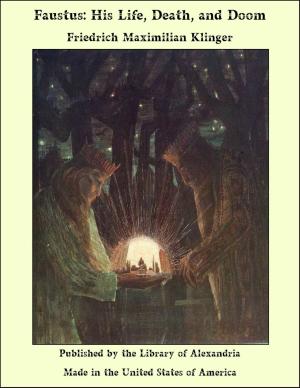| Author: | Hilda Conkling | ISBN: | 9781465525314 |
| Publisher: | Library of Alexandria | Publication: | March 8, 2015 |
| Imprint: | Language: | English |
| Author: | Hilda Conkling |
| ISBN: | 9781465525314 |
| Publisher: | Library of Alexandria |
| Publication: | March 8, 2015 |
| Imprint: | |
| Language: | English |
A book which needs to be written is one dealing with the childhood of authors. It would be not only interesting, but instructive; not merely profitable in a general way, but practical in a particular. We might hope, in reading it, to gain some sort of knowledge as to what environments and conditions are most conducive to the growth of the creative faculty. We might even learn how not to strangle this rare faculty in its early years. At this moment I am faced with a difficult task, for here is an author and her childhood in a most unusual position; these two conditions—that of being an author, and that of being a child—appear simultaneously, instead of in the due order to which we are accustomed. For I wish at the outset to state, and emphatically, that it is poetry, the stuff and essence of poetry, which this book contains. I know of no Other instance in which such really beautiful poetry has been written by a child; but, confronted with so unwonted a state of things, two questions obtrude themselves: how far has the condition of childhood been impaired by, not only the possession, but the expression, of the gift of writing; how far has the condition of authorship (at least in its more mature state still to come) been hampered by this early leap into the light? The first question concerns the little girl and can best be answered by herself some twenty years hence; the second concerns the world, and again the answer must wait. We can, however, do something—we can see what she is and what she has done. And if the one is interesting to the psychologist, the Other is no less important to the poet. The two little girls go to a school a few blocks from where they live. In the afternoons, they take long walks with their mOther, or play in the garden while she writes. On rainy days, there are books and Mrs. Conkling's piano, which is not just a piano, for Mrs. Conkling is a musician, and we may imagine that the children hear a special music as they certainly read a special literature. By "special" I do not mean a prescribed course (for dietitians of the mind are quite as apt to be faddists as dietitians of the stomach), but just that sort of reading which a person who passionately loves books would most want to introduce her children to. And here I think we have the answer to the why of Hilda. She and her sister have been their mOther's close companions ever since they were born. They have never known that somewhat equivocal relationship—a child with its nurse. They have never been for hours at a time in contact with an elementary intelligence. If Hilda had shown these poems to even the most sympathetic nurse, what would have been the result? In the first place, they would, in all probability, have been lost, since Hilda does not write her poems, but tells them; in the second, they would have been either extravagantly praised or laughingly commented upon. In either case, the fine flower of creation would most certainly have been injured
A book which needs to be written is one dealing with the childhood of authors. It would be not only interesting, but instructive; not merely profitable in a general way, but practical in a particular. We might hope, in reading it, to gain some sort of knowledge as to what environments and conditions are most conducive to the growth of the creative faculty. We might even learn how not to strangle this rare faculty in its early years. At this moment I am faced with a difficult task, for here is an author and her childhood in a most unusual position; these two conditions—that of being an author, and that of being a child—appear simultaneously, instead of in the due order to which we are accustomed. For I wish at the outset to state, and emphatically, that it is poetry, the stuff and essence of poetry, which this book contains. I know of no Other instance in which such really beautiful poetry has been written by a child; but, confronted with so unwonted a state of things, two questions obtrude themselves: how far has the condition of childhood been impaired by, not only the possession, but the expression, of the gift of writing; how far has the condition of authorship (at least in its more mature state still to come) been hampered by this early leap into the light? The first question concerns the little girl and can best be answered by herself some twenty years hence; the second concerns the world, and again the answer must wait. We can, however, do something—we can see what she is and what she has done. And if the one is interesting to the psychologist, the Other is no less important to the poet. The two little girls go to a school a few blocks from where they live. In the afternoons, they take long walks with their mOther, or play in the garden while she writes. On rainy days, there are books and Mrs. Conkling's piano, which is not just a piano, for Mrs. Conkling is a musician, and we may imagine that the children hear a special music as they certainly read a special literature. By "special" I do not mean a prescribed course (for dietitians of the mind are quite as apt to be faddists as dietitians of the stomach), but just that sort of reading which a person who passionately loves books would most want to introduce her children to. And here I think we have the answer to the why of Hilda. She and her sister have been their mOther's close companions ever since they were born. They have never known that somewhat equivocal relationship—a child with its nurse. They have never been for hours at a time in contact with an elementary intelligence. If Hilda had shown these poems to even the most sympathetic nurse, what would have been the result? In the first place, they would, in all probability, have been lost, since Hilda does not write her poems, but tells them; in the second, they would have been either extravagantly praised or laughingly commented upon. In either case, the fine flower of creation would most certainly have been injured















